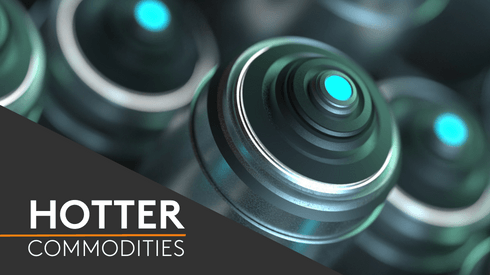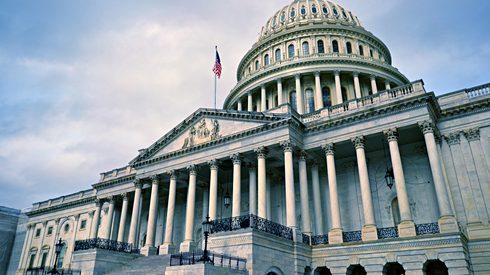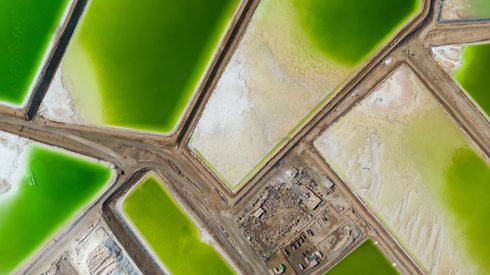Car manufacturers in China produced 2.03 million units in February, up by 27.5% from a month earlier and by 11.9% from a year earlier, while sales increased by 19.8% month on month and by 13.5% year-on-year to 1.98 million units, according to CAAM data released on Friday March 10.
CAAM added that the low comparison figures – due to the Lunar New Year holidays in January of this year and February 2022 – also had a part in the substantial increases in output and sales last month.
The electric vehicle (EV) sector also recovered from January’s fall, with output of pure EVs, hybrid EVs and fuel-cell EVs jumping by 48.8% from a year earlier to 552,000 units in February, up from 425,000 units in the previous month.
China’s EV sales surged 55.9% year-on-year to 525,000 units last month, up from January’s 408,000 units, CAAM data showed.
The nation’s central authorities reiterated the encouragement to increase sales of EVs and ‘green’ home appliances in rural areas in the 2023 central document of key tasks for comprehensively promoting rural vitalization, which was released in early February.
Auto exports from China rebounded in February, with the volume increasing by 9.4% month on month and by 82.2% year-on-year to 329,000 units.
In the same month, China’s EV exports continued to rise, increasing by 5.3% from January to 87,000 units, a year-on-year rise of 79.5%.
Cold-rolled coil (CRC) prices rise to nine-month high
Fastmarkets’ weekly price assessment for steel cold-rolled coil, domestic, ex-whs Eastern China, was 4,800-4,830 yuan ($692-696) per tonne on March 10, the highest level in nearly nine months. CRC is a principal material for car manufacture.
The latest assessment was up by 230 yuan per tonne from 4,570-4,600 yuan per tonne a month earlier, thanks to the acceleration of a seasonal demand recovery.
The stronger-than-expected demand boosted market sentiment and contributed to the recent rally in Chinese steel prices, while higher steelmaking costs also offered support to prices for finished steel, several traders told Fastmarkets.
CRC inventories held by traders in 21 major Chinese cities totaled 1.48 million tonnes on February 28, down by 20,000 tonnes, 1.3%, from February 20, according to data from the China Iron & Steel Association.
Leading Chinese steelmaker Baoshan Iron & Steel raised its CRC prices for a fourth straight month for April bookings, increasing its domestic base prices by 200 yuan per tonne month on month, after implementing an increase of the same size for March bookings.
EV battery materials price moves mixed
Prices for lithium salts, a key material for EV battery production, continued to weaken throughout February, depressed by muted downstream demand and bearish sentiment.
Market participants pointed out that the weak performance in the EV sector had led to thin demand for lithium salts. Cathode producers did not have many new orders from battery producers, which capped their demand for upstream lithium salts, they said.
Due to the limited spot demand, upstream lithium stocks were accumulating. Sellers have therefore continually lowered their offer prices in recent months to boost sales, because they feared more downward price corrections.
“But the market expects lithium prices to continue to drop, given the slow recovery in the EV sector. Lithium buyers have become even more cautious because they think lithium prices in China can go down by another 10,000-20,000 yuan per tonne, if they choose to wait for another week,” a lithium trader said.
“In addition, demand is really thin. So the offers that are continually lowered by sellers only accelerate the downtrend, and very few of them are taken,” the trader added.
Fastmarkets’ assessment of the lithium carbonate, 99.5% Li2CO3 min, battery grade, spot price range, exw domestic China, was 325,000-350,000 yuan per tonne on Thursday, down by 15,000-20,000 yuan per tonne from 340,000-370,000 yuan per tonne a week earlier. The latest price was down by 120,000-135,000 yuan per tonne from 460,000-470,000 yuan per tonne on February 2.
The assessment of the lithium hydroxide monohydrate, LiOH.H2O 56.5% LiOH min, battery grade, spot price range, exw domestic China, was 400,000-445,000 yuan per tonne on Thursday, widening from 410,000-440,000 yuan per tonne a week earlier. The latest price was down from 460,000-490,000 yuan per tonne on February 2.
Prices for cobalt sulfate, another key battery raw material, continued their downward trend in the first half of February due to weak demand from downstream buyers, but the prices started to recover in the second half of February because of a flurry of buying among traders.
Fastmarkets’ price assessment for cobalt sulfate, 20.5% Co basis, exw China, was 42,000-44,000 yuan per tonne on March 10, unchanged from March 8, but up by 2,000-3,000 yuan per tonne from 40,000-41,000 yuan per tonne on February 1.
“Actual demand for cobalt sulfate from the EV sector hasn’t picked up significantly yet,” a cobalt sulfate consumer said, “and the recent increase for cobalt sulfate was mainly driven by increased buying by traders doing some bargain hunting. So most cobalt sulfate producers pushed up their offers to test the market.”
The strength of upstream cobalt hydroxide prices over the same period also brought support to the cobalt salts market.
Fastmarkets’ weekly cobalt hydroxide index, 30% Co min, cif China, was $9.48 per lb on March 10, up by $0.19 per lb from $9.29 per lb on March 3. The index was $9.00 per lb on February 3.
Spot prices for battery-grade manganese sulfate (Mn sulfate) also slipped in a weak market.
Fastmarkets’ price assessment for manganese sulfate, 32% Mn min, battery grade, exw mainland China, was 5,800-6,300 yuan per tonne on March 9, widening downward by 200 yuan per tonne from 6,000-6,300 yuan per tonne the previous week.
“The weak Mn sulfate market situation hasn’t changed. We still have stocks and don’t need to buy extra material,” a downstream producer source said.
Although China’s output and sales of EVs in February increased from the previous month, sources told Fastmarkets that they did not notice an improvement in raw material demand.
“Downstream precursor plants are still under pressure to sell their own products,” a second downstream producer source said.
Fastmarkets’ weekly price assessment for nickel sulfate, min 21%, max 22.5%; cobalt 10ppm max, exw China, averaged 38,250-39,125 yuan per tonne in February, up by 6.54% from 36,000-36,625 yuan per tonne one month before.
A rebound was seen in nickel sulfate market in February, defying the sluggish sentiment in the downstream EV sector, although the upward momentum halted at the end of the month.
With nickel prices mostly staying above $250,000 per tonne, market participants saw an arbitrage between nickel sulfate and refined nickel. Correspondingly, they were heard to be buying sulfate as feedstock to produce the more valuable nickel plates, lending support to the weakening nickel sulfate market.
The support from this newfound demand for plate-making did not last, however, with the arbitrage narrowing while downstream demand still had not recovered.
“The rebound was short-lived because it was not fundamentally supported,” a precursor source said, lamenting a still-lean order book.
And a source in China added: “We’ll see if demand can rebound after the typical off-season for EV consumption.”
Keep up to date with global market insights and predictions for 2023 and beyond with our NewGen forecasts.






